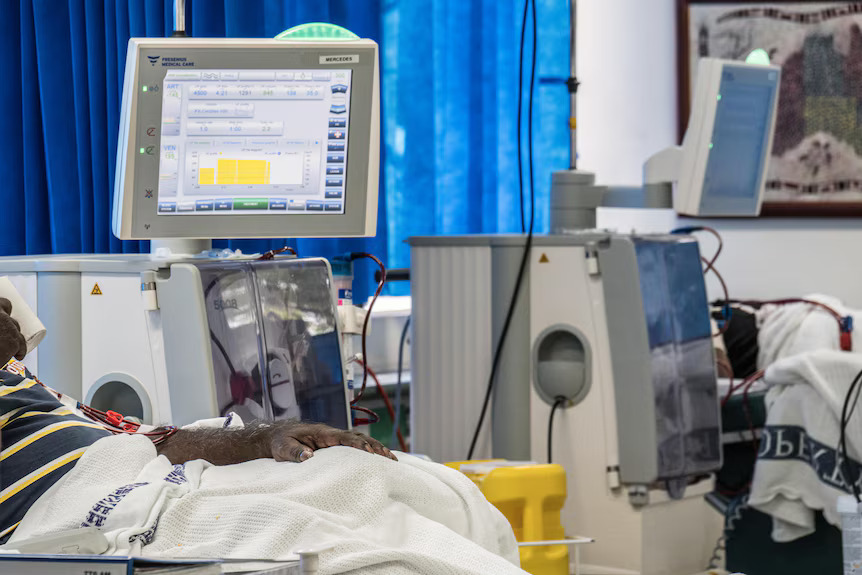A 76% subsidy on kidney dialysis by the federal government has stirred hope across Nigeria. Long criticised for being out of reach to average citizens, dialysis treatment previously cost about ₦50,000 per session, with many patients requiring two or three sessions each week.
Under the new policy, approved by President Bola Ahmed Tinubu, patients will now pay ₦12,000 per session.
Already in effect at ten federal hospitals—including Lagos University Teaching Hospital, University College Hospital Ibadan and the University of Maiduguri Teaching Hospital—the intervention has been hailed as a game changer for thousands of Nigerians living with kidney disease.
The subsidy signals a recognition that kidney failure is no longer a rare health condition but a widespread challenge demanding immediate action.
Rising burden, limited options
In recent years, Nigeria has seen a steady rise in kidney-related illnesses, largely linked to hypertension, diabetes and lifestyle changes. With organ transplants extremely rare and exorbitant, dialysis remains the most common form of treatment.
But the high cost has left many patients untreated or undertreated, leading to avoidable deaths. In response, some state governments and organisations had already pioneered solutions before the federal intervention.
In Kano, for example, the state government launched a kidney care initiative providing partial subsidies for dialysis in public hospitals.
Similarly, non-governmental organisations in Lagos and Abuja, such as the Olivehill development initiative have sponsored free dialysis days, easing access for those who would otherwise forgo treatment. These initiatives, though smaller in scale, have created a way for broader federal action, proving that subsidies can save lives and restore dignity.
Beyond reducing the cost, another critical solution to kidney disease in Nigeria has been prevention and early detection. Several hospitals and NGOs have begun running free kidney screening programmes to identify people with high risks before the disease advances.
The Nigerian Association of Nephrology has organised awareness campaigns on the dangers of excessive salt intake, untreated infections and uncontrolled blood pressure, all of which are major contributors to kidney failure.
In schools and workplaces, health talks and routine screening are being used to encourage lifestyle changes and timely medical checks. While less dramatic, these approaches strike at the root of the crisis, keeping the number of Nigerians needing dialysis in check.
Technology has been a major force stepping in to support kidney care. Mobile health apps such as One drop, MyFitnessPal and Health diary by MedM now allow patients to monitor blood pressure, blood sugar and hydration levels; all of these are key markers for kidney health.
Some hospitals are adopting telemedicine platforms that connect kidney patients in rural areas with nephrologists in urban centres, reducing the strain of travel while ensuring professional oversight.
Meanwhile, a few teaching hospitals are investing in automated dialysis machines that not only speed up treatment but also improve safety by reducing complications.
These innovations demonstrate that addressing kidney disease is not about cutting costs alone but also about making care more efficient, preventive and accessible.
Overall, these multifaceted solutions hint at an improved way of thinking about kidney disease in Nigeria. Instead of leaving patients to navigate the crisis alone, the country is deploying awareness and innovation to develop a band of responses towards kidney-related illnesses.
The new subsidy itself draws on earlier initiatives that have helped to reshape kidney care in Nigeria. If expanded, this coordination of solutions has the potential to transform kidney disease from a death sentence into a manageable condition and bring succour to millions of Nigerians.
The Nigerian federal government has introduced a 76% subsidy on kidney dialysis, reducing the cost to ₦12,000 per session from the earlier ₦50,000, making the treatment more accessible to the general population. This policy, approved by President Bola Ahmed Tinubu, is currently effective at ten federal hospitals and has been considered a significant stride in aiding those with kidney disease—a growing concern due to related conditions like hypertension and diabetes. The subsidy reflects the recognition that kidney failure is a widespread issue necessitating urgent intervention.
Previously, high treatment costs led to untreated cases and preventable deaths; some state governments and NGOs had started providing partial subsidies and free dialysis days. This federal intervention draws inspiration from such initiatives. Beyond affordability, solutions focus on prevention and early detection; hospitals and NGOs offer free screenings and awareness campaigns to tackle high-risk behaviors like excessive salt intake. Technology, including health apps and telemedicine, also enhances care by enabling better monitoring and connectivity with specialists. Moreover, investments in automated dialysis machines improve treatment efficacy.
These developments indicate a holistic approach to managing kidney disease in Nigeria, aiming to change it from a life-threatening condition to a manageable one, thereby improving the quality and accessibility of care for millions of Nigerians.






